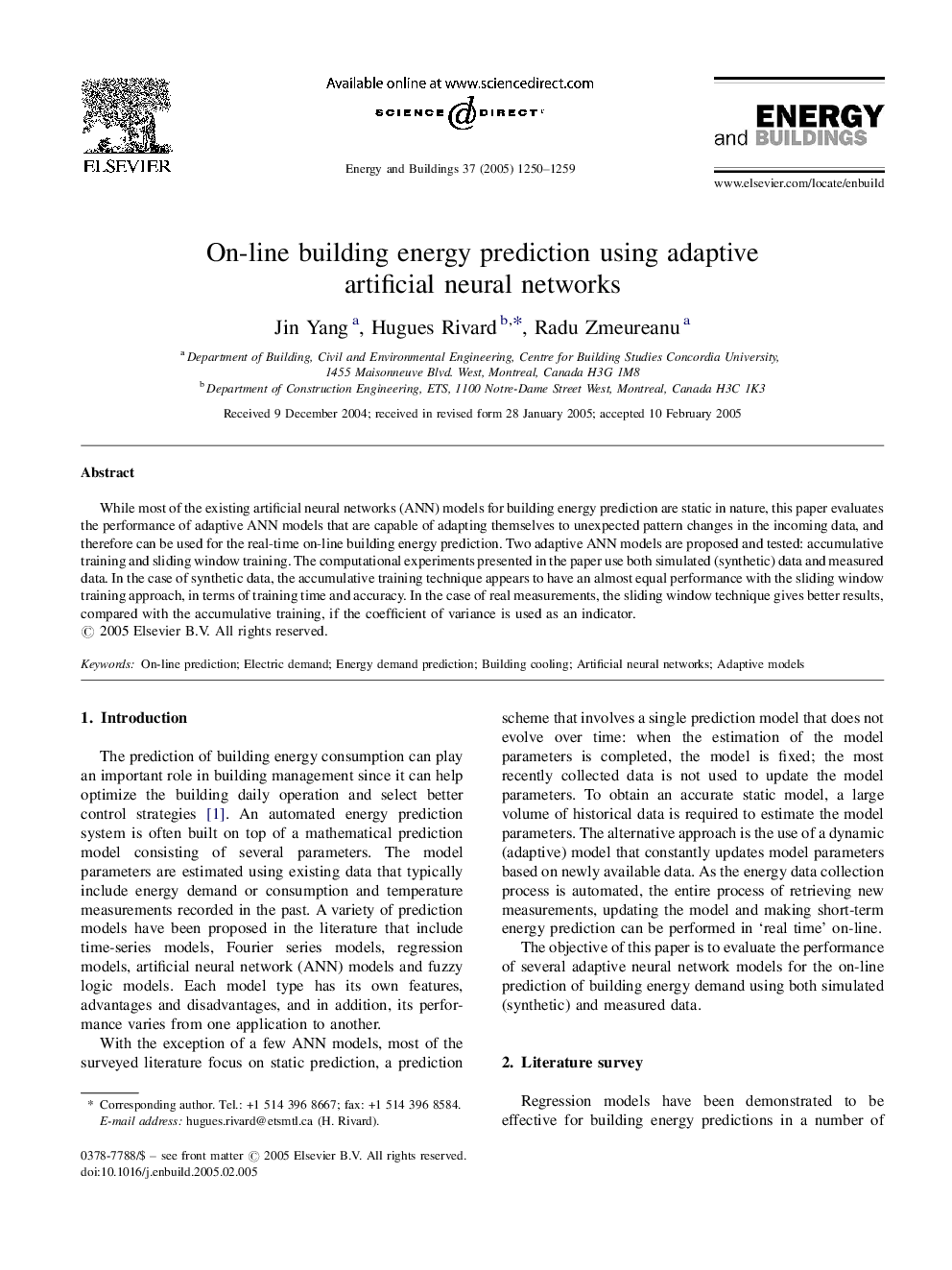| Article ID | Journal | Published Year | Pages | File Type |
|---|---|---|---|---|
| 10286128 | Energy and Buildings | 2005 | 10 Pages |
Abstract
While most of the existing artificial neural networks (ANN) models for building energy prediction are static in nature, this paper evaluates the performance of adaptive ANN models that are capable of adapting themselves to unexpected pattern changes in the incoming data, and therefore can be used for the real-time on-line building energy prediction. Two adaptive ANN models are proposed and tested: accumulative training and sliding window training. The computational experiments presented in the paper use both simulated (synthetic) data and measured data. In the case of synthetic data, the accumulative training technique appears to have an almost equal performance with the sliding window training approach, in terms of training time and accuracy. In the case of real measurements, the sliding window technique gives better results, compared with the accumulative training, if the coefficient of variance is used as an indicator.
Keywords
Related Topics
Physical Sciences and Engineering
Energy
Renewable Energy, Sustainability and the Environment
Authors
Jin Yang, Hugues Rivard, Radu Zmeureanu,
